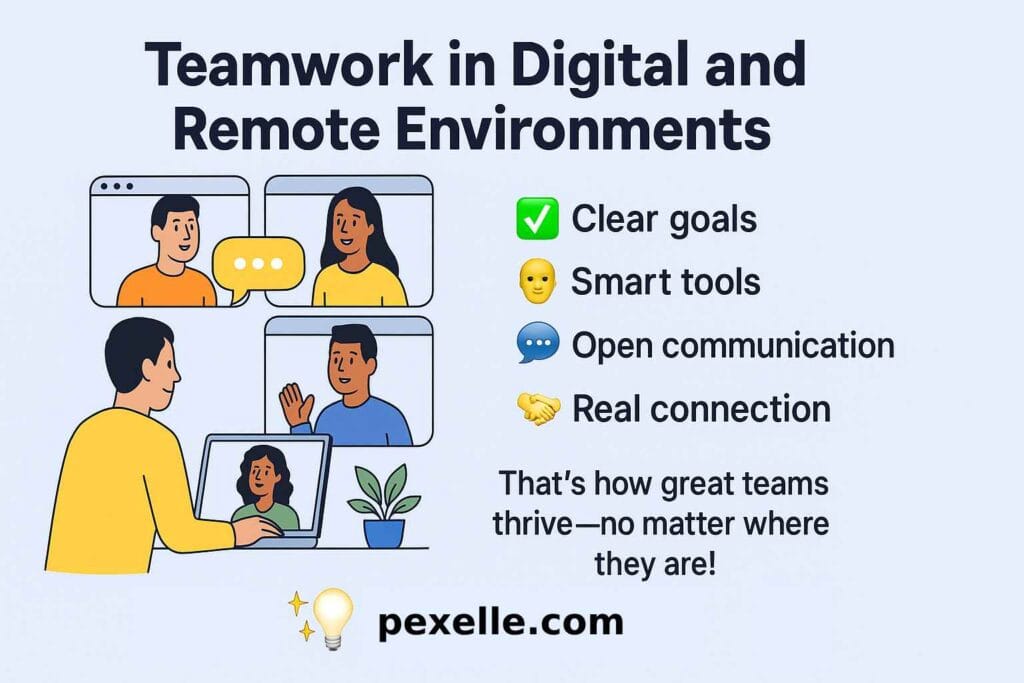Teamwork in Digital and Remote Environments

In today’s interconnected world, digital and remote collaboration has become the norm for many organizations. Whether due to global teams, hybrid work models, or the rise of freelancing and remote-first companies, the ability to work effectively in virtual teams is now a critical skill. While digital tools have made collaboration easier than ever, they have also introduced new challenges that require strategic approaches to overcome.
The Digital Shift in Teamwork
Traditional teamwork was grounded in physical presence, face-to-face meetings, and spontaneous hallway conversations. In contrast, digital environments rely heavily on asynchronous communication, video conferencing, and shared digital workspaces. Platforms like Slack, Microsoft Teams, Notion, Trello, and Zoom have revolutionized how teams coordinate tasks, manage projects, and communicate across time zones. This shift has allowed companies to tap into global talent, operate more flexibly, and reduce overhead costs.
Key Challenges of Remote Collaboration
Despite its advantages, remote teamwork comes with challenges such as communication breakdowns, lack of real-time feedback, time zone misalignments, and feelings of isolation. Without proper systems in place, team members may struggle to stay aligned, experience delays, or even feel disconnected from the company culture. Additionally, managing accountability and trust can be more difficult when interactions are limited to digital platforms.
Strategies for Effective Digital Teamwork
To foster productive collaboration in remote settings, organizations must prioritize clarity, transparency, and intentional communication. This involves setting clear expectations, using project management tools to track progress, and maintaining regular check-ins. Establishing communication norms—such as response time expectations and preferred channels for different types of messages—can reduce friction. Virtual team-building activities and digital coffee breaks can also help strengthen interpersonal bonds and company culture.
Embracing the Future of Work
As remote and hybrid work become permanent fixtures in the professional landscape, successful teams will be those that adapt and thrive in digital ecosystems. Investing in training, adopting flexible work policies, and continually refining workflows will be essential. With the right mindset and tools, digital teamwork can be just as—if not more—effective and inclusive than traditional in-person collaboration.
Source : Medium.com




